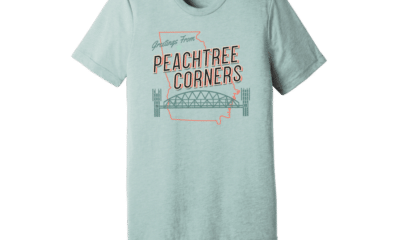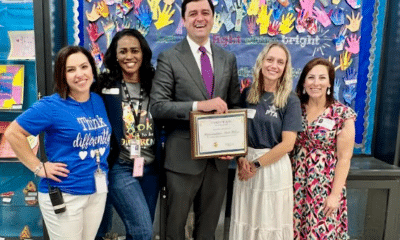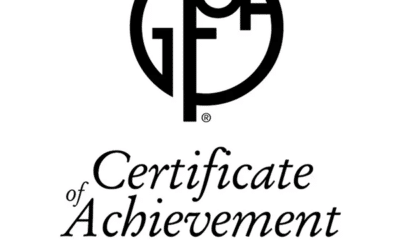Business
Capitalist Sage: Why Digital Marketing is a Must in Every Small Business [Podcast]
Published
5 years agoon
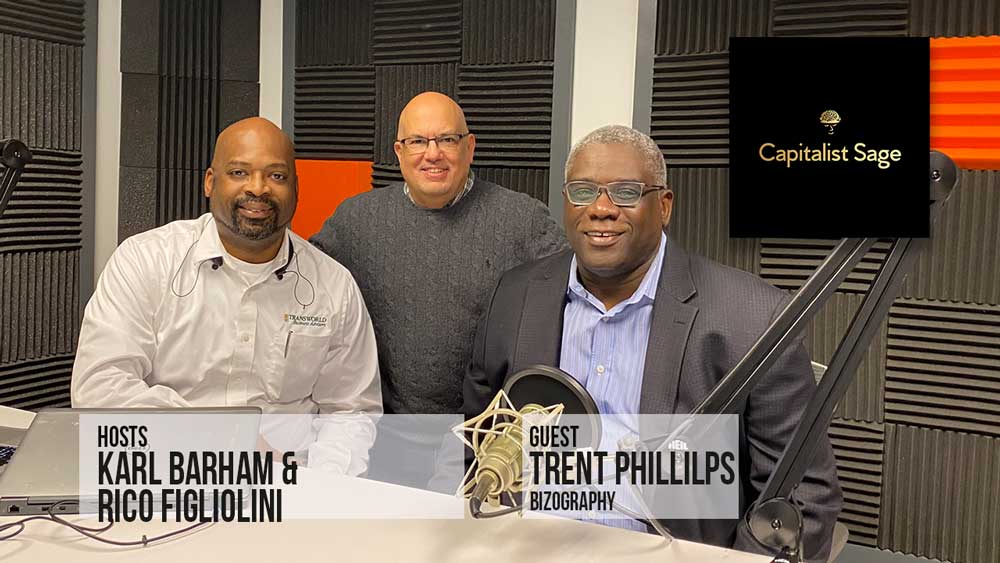
Are you missing something in your business marketing plan? Trent Phillips, CEO and founder of Bizography is here with great tips and tricks for your digital marketing plan. Join Karl, Rico, and Trent as they discuss the best tactics for your business.
Resources:
Website: bizography.com
[00:00:30] – Intro
[00:04:49] – About Trent
[00:07:56] – Changes in Consumer Behavior
[00:13:25] – Why you should consult an expert
[00:15:19] – First steps to make a difference in your marketing
[00:19:31] – Choosing the right marketing for your business
[00:22:05] – Advantages of video
[00:28:06] – Driving conversion and leads
[00:32:59] – ROI on digital marketing and AB Testing
[00:41:33] – Closing
“What stuck with me was that they were small and big companies have a lot of resources,
Trent Phillips
programmers to make these kinds of things work. Who helps the small guy? And that was the light bulb moment for me, is that there is an opportunity, to help small businesses get on the internet.”
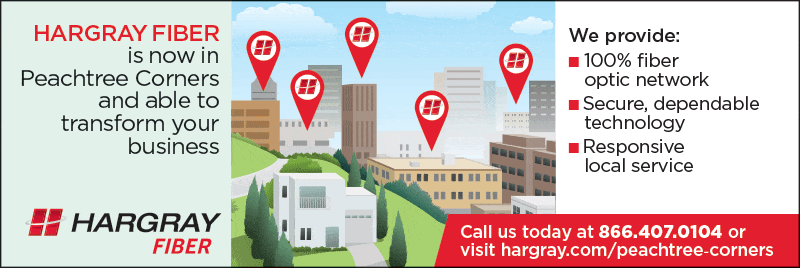
Podcast Transcript
Karl: [00:00:30] Welcome to the Capitalist Sage podcast. We are here to bring you advice and tips from season pros and experts to help you improve your business. I’m Karl Barham with Transworld business advisors and my co-host Rico Figliolini with Mighty Rocket Digital Marketing and the publisher of the Peachtree Corners Magazine. Rico, how about introducing our sponsors today?
Rico: [00:00:49] Sure. So let’s talk about where we are first. We’re in the podcast room of Atlanta Tech Park. Atlanta Tech Park is an innovation hub with 60, 70 companies. I think right now their work out of here, out of a capacity of about 110 so a lot of companies here at Atlanta Tech Park, it’s an event facility also. So you’ll find all sorts of things going on. What’s the next one? Is the FinTech event happening in April?
Karl: [00:01:14] It’s coming up in April. Their CEO, a CIO round tables, their schedule.
Rico: [00:01:19] And you can find one on one financing here. You can network with other companies and other financial sources. They do Financial Fridays.
Karl: [00:01:29] Financial Fridays, we have Wine Wednesdays once a month. Lots of places for entrepreneurs to come out, network with others, learn some stuff, and get support they need.
Rico: [00:01:39] That’s right. So Atlanta Tech Park. So it’s actually on another innovation thing here in Peachtree Corners. And that’s the Curiosity Lab in Peachtree Corners. It’s a 5G Sprint, we should say Sprint 5G enabled autonomous vehicle track, one in 1.7 miles or so. It’s a living lab. I mean, there’s cars on there, there’s people walking crossing the street, and it’s a place that companies can come to plug in their stuff. And whether it’s in the Ollie Self driving vehicle or put the wrong vehicle on this, on this track.
Karl: [00:02:12] And look outside of Atlanta tech park. You’ll see some scooters out there. So scooters are coming. E-scooters coming in yet will driverless scooters that will return back to its location. So we don’t have that problem. Folks in downtown Atlanta.
Rico: [00:02:27] But the dumping the scooters on the corners, no, these are enabled through an app where you can get them to come to you even go pick them up. And then, like you said, once you’re done, they’ll go right back to where they were. So, and they’ll self charge and stuff like that. So that’s another thing that’s going on here. And you know, the backbone is wireless, right? It’s 5G. But what drives that whole backbone? You still got to bring the cable here to be able to do the 5G and what’s the backbone of that? One of our lead sponsors, and that’s Hargray Fiber. They are a Hilton Island based company, and they are a company that in the Southeast is bringing fiber optics to not only consumers, but businesses. So if you’re a small business and you’re looking for fiber solution for your network, for phone, internet, entertainment, you can go to them. If you’re an enterprise level, you’re looking for bundled resources that can do VoIP and other types of incidents, traffic and security that they can
provide. They’re like an IT company, if you will. So they are a lead sponsor of ours that provides that in. You can find more about this company, Hargray Fiber at HargrayFiber.com.
Karl: [00:03:38] Fabulous. I love how cities like Peachtree Corners all over the country are transforming themselves into this technology in digital, digital, new smart city. And one of the things that we’ve been noticing is that, small businesses have been struggling to make their transformation to leverage digital marketing, digital technology. So I’m so happy to have today’s guest, Trent Phillips, founder and CEO of Bizography. A local web design and digital marketing company that helps people improve their digital month marketing. If anybody out there is looking for them to grow their sales. The traditional methods of doing that, they still work, but they’ve evolved. People have mobile phones. They’re looking in different apps, web, Facebook, Instagram, and others and Trent and his team and photography helps people do that. So we just want to share some tips today on what people can do to put that into their marketing plans for 2020 to help them continue to grow their business. Welcome, Trent. Really appreciate you coming.
Trent: [00:04:48] Thank you for having me today.
Karl: [00:04:49] Well, why don’t we start off by telling us a little bit about, you know, what brought you to where you are today? Just tell us a little bit about yourself and, and what you’re doing now?
Trent: [00:04:59] Well, I guess that would be considered a dinosaur today. I’ve actually been in the technology business for 35 years. Started out, actually writing a babysitting COBOL program on a mainframe and realized that that was not, my destiny in life. And so, went, got a job in the software business. So in software, initially a portfolio analysis software to wall street firms and did that for awhile. I actually was in the software business for 15 years. Went through two or three startups. A very interesting process. A couple in IPO, so, you know, worked out. But, around 1999, I had just transitioned from the last software company I was working for. And, at the time the internet was the brand new thing. And, I was enthralled by the internet. And so I’m sitting in the CEO’s office at Home Depot one day, and he was talking to me about a software contract, and I had a call from one of his suppliers, and the supplier was having problems, logging into their inventory system, via the internet. And I realized, after talking to the CIO, he’s like, these guys are a very small supplier. What stuck with me was that they were small and big companies have a lot of resources, programmers to make these kinds of things work. Who helps the small guy? And that was the light bulb moment for me, is that there is an opportunity, to help small businesses get on the internet. And, I was much more interested in providing the content. So it started out as a web design company and, about six months after we started, the internet went, kaboom. And so a lot of people went out of business. And so I kinda…
Karl: [00:07:18] 2002 right?
Trent: [00:07:19] Yeah, 2000. So I looked around and said, you know what? People are still going to need websites. And, that’s where we actually made our bet. And, 20 years we’ve been doing that, building websites and over that timeframe, things have evolved. You know, search engines have come along. Social media has come along. Digital marketing has come along. So, we’ve just been a company that’s kind of embraced all those technologies as they came along and incorporated those, into our solutions for small and medium size businesses.
Karl: [00:07:56] So let’s get into that a little bit. you start thinking about the small business, on our, what are some of the things that are changing in consumer behavior when it, when it comes to business marketing?
Trent: [00:08:10] Well, I think the biggest thing that has happened is the consumer, how they consume information has changed. And for somebody who’s been in business in the last 10, 15 years, they have actually seen a dramatic shift. And the way people get information. And so in the marketing business, you have to find customers, and every business does. But how do you actually go about finding those customers? It used to be the yellow pages. It used to be a teller, an ad in the newspaper. Those days are long gone. Everybody, they walk around with a cell phone and so they’re there. They’re a captive audience in some ways. But how do you find that ideal client? And so that’s been one of the things that we’ve been tasked with. And one of the things that we actually provide a solution is helping those businesses, small businesses find clients today. And it’s different.
Karl: [00:09:20] So, if you think about it, and, and I love, I feel like the role of print media has shifted. And, and 30, 40 years ago, it served both giving information, keeping people aware. It was the classify where people went and found things to buy and sell. It was a sports section where you got information on sports and so on, and it filled maybe, you know, 10 other roles today and print media still has an important role. I think it’s elevated, sharing story telling. And so on. But some of those other aspects of it have started going into other aspects, especially online and digital media. If you’re a small business owner today and you’ve had a successful business for 25 years, you’re, you’re the place where everyone already knows your name. Why should I as a business owner like that, invest or start exploring improved websites, digital marketing, those types of things?
Trent: [00:10:23] Because your client today is in those places. I don’t think you have to abandon the traditional ways you’d done business. I always use the old football analogy. As a, as a coach, you got to have a ground game and you gotta have an air game. And I think of the old ways of actually doing business, face to face, handing out business cards, networking, doing print media, those things. That’s the ground game. But you also today have to have an air game and that air game has to be, you know, social media marketing, email marketing, online advertising, all the things that people have embraced the day, as, as solutions for getting information. The combination of the two, I think is where the opportunity is. And, there’s a balance that you have to strike and it depends on the business. Some businesses can still use print media very effectively today. But a lot of businesses, their clients are on the internet.
They’re on social media. They’re in all the places that you see these digital assets, and you’ve got to have a presence there. And so what we do is we try to help clients understand, where are your clients? How do you get to those clients? And then provide the services to help them acquire this contents and keep them.
Rico: [00:11:57] Do you, do you find like a, you know, when they teach you business, right, in business school and stuff, they teach you every client’s different. You have to find out what, how they need to reach their client because every client is different depending on the product, service and all that. When we talk social media, do we also talk, like if you do in retail, do you want to be on Amazon? Do you want to have an Amazon store? I mean, you haven’t might have a brick and mortar store, but do you want to have that Amazon store? Because today you can be on Amazon, you can be on, Home Depot will love you, put their products on their roll. Mark, go to any of these places, right? And what’s that? All the one Etsy makers. I mean the, and that’s not necessarily social media, but that’s all encompassing, right? Do you find that?
Trent: [00:12:43] Right. As a matter of fact, depending on what you’re doing, you may need to be in all those places, right? You may have your own eCommerce site and still sell products on Amazon. if you have excess inventory, you may actually want to get rid of it on eBay. And so you, you could actually use all of those different places to do e-commerce. And that’s the thing that we try to articulate the clients is that, one size does not fit all. Every company is unique in how they actually do business on the web. What we try to do is to try to help them understand what’s the best approach for them.
Rico: [00:13:25] What do you, how do you answer them when they say to you? Social media. I have a Facebook page. I have an Instagram account. And I, I, we’re, we’re handling it fine. But then you go and you look and you say, well, maybe they posted once every three weeks or something. How do you answer that to them when they think it’s free and they think that they can just do it themselves?
Trent: [00:13:46] Well, there are certain things that you can definitely do yourself. I’m looking at something like a Facebook platform, a very sophisticated platform. And I can boost the posts like a 15 year old can boost a post on Facebook, but he can’t put together a digital marketing campaign that actually segments my customer base based off their consumer behavior, based off the things that they’ve actually done as far as surfing the internet.
Karl: [00:14:16] Why not? Why? Why can’t you know Joe, the average business owner? Why can’t he do that?
Trent: [00:14:22] Because he’s wearing a lot of hats. He’s wearing a lot of, he’s, he’s the marketing guy. One day, he’s the accounting guy. The next day, he’s the HR guy. The next day. And so he’s wearing a lot of hats. And so if you’re going to wear a lot of hats, which every business owner has to at some point, that makes only a lot of sense to outsource some of these things to a company like ours. Today, very few people do payroll internally, because it’s just not
cost effective to do so. And what we try to actually, work with our clients to understand is, what is your core competency? Where are you most comfortable if marketing and digital marketing is not your core competency, then outsource that to us. Because we’ve been doing it for a long time. We have a lot of experience doing it. And we can actually do it more effectively.
Karl: [00:15:19] What are the times when I talk to business owners around their digital marketing or so on? They say, Oh, I tried that and it didn’t really do anything. What are they missing to give us specific as to what does it look like to do it well versus what you see people, when you start with them, what are they doing normally versus how do you really elevate that?
Trent: [00:15:42] The first thing you have to do is you have to set expectations. Because a lot of people think that, Hey, I want to run a Facebook ad and I’m going to get clients right away. It doesn’t work that way. There, there has to be expectations set as to what’s going to happen. There are certain things you can do digital marketing wise where you can get results quicker. But if you’re actually just doing content marketing, blogging, you know, putting stuff on different social media platforms. You may not see a return on that investment right away. Why not? Because it’s not a traditional way for people to actually spend money. Here’s what happens today, and this is the beauty of the internet. The internet, the main use of it, I think is still today is an education platform. The best user is an educated user, and today everybody can get very educated on the internet by just going out and looking at stuff. I can read blogs about how to do anything. I can go to YouTube and learn how to do anything. And so as an education platform, I could learn certain stuff. But if you’re not doing digital marketing day in, day out, like a small business owner or a lawyer or a dentist or a doctor who, who’s not. There’s no way you can actually keep up.
Karl: [00:17:11] So help me understand that. Let’s say I’m an attorney and I’m putting out a blog regularly on my website, and maybe I posted them. What’s, what am I missing? What, what’s the thing that a professional firm does that’s different than what I’m doing?
Trent: [00:17:29] Well, you may actually put out a blog, you may put a few tags in it. You may not be optimizing it for search engines properly. You, the frequency needs to be there in order for you to actually do it right. Your frequency, how many times are you blogging? and once that blog is done, is it just been blogged on your blog, or is it, being posted on your Facebook page? Is it being tweeted on your Twitter account? Is it being posted to your LinkedIn account? All at the same time?
Rico: [00:18:04] And probably several times. No one’s looking at the Twitter feed like every single minute of the day. So that stuff needs to be out there five or ten times.
Karl: [00:18:14] It sounds like you’re describing to me part of this equation to get good at this. Is there, there’s a little person in a room that’s in front of their computer just constantly doing stuff for later to that. Is that, is that what’s going on?
Trent: [00:18:30] No, no. There’s a, there’s technology in place. There’s automation in place, to make all that happen. We have people who can actually put that automation in place, tie all those different platforms together, make sure that you’re actually targeting the right platforms. If I’m, looking for 20 year olds. I’m probably not looking at Facebook. And so a lot of times people are actually putting stuff out on these different platforms. I don’t understand the law in demographics associated with these different platforms, because depending on who your customers are, they may actually be in a different place. And so that kind of expertise isn’t always known. And so, automation, helping them with the demographics. developing the content, for those different things. That’s all stuff that we do.
Karl: [00:19:31] If you, if you look at, different types of business, some of those just kind of walk to a couple of professional services business, what platform, what would be a good digital marketing plan look like for lawyers, accounting and professional service?
Trent: [00:19:45] Well, I’m definitely going to target LinkedIn because that’s where professionals are. The people that they work with are typically professionals also. So that’s a very good platform, I think by the thought everyone should actually market on Facebook, but the sheer size of it, and is, is big enough that it actually has, a target market for pretty much everybody. And so those two platforms are very good. Then the other one I think is extremely important is Twitter.
Karl: [00:20:17] For professional services?
Trent: [00:20:19] Twitter. Yeah. Because what happens is that Twitter is the 21st century PR tool. And, if you want to actually market your services, you want to toot your own horn. Twitter’s how you do it. And so you have to use, not only traditional ways of doing stuff, but also stuff like Twitter, which, I think gets overlooked.
Rico: [00:20:45] So what about Instagram though, wouldn’t you?
Trent: [00:20:47] Instagram’s for, for picture based stuff is good. And if you’re in a service business, where are you showing your work is important. Absolutely, pinterest.
Karl: [00:20:59] So let’s flip to that. Let’s, let’s say, you know, you’re not a service based basement, but you make a product. Let’s say it’s arts, it’s, it’s, it’s gift type items, crafts, that kind of stuff.
Trent: [00:21:11] Pinterest, Instagram, Facebook. Those are all good platforms.
Karl: [00:21:16] And you’re posting what, what? So what’s the content? What is the content you would deliver on that type of?
Trent: [00:21:21] I’m going to deliver what your, your product, you know, examples of your work. Cause that’s really what you’re doing. Also, again, I still think you have to use Twitter as a way of actually showing your work. you still have to use a blog as a way of actually, you know, demonstrating your expertise, positioning yourself as an expert in that area.
Karl: [00:21:42] So if you’re a service person and you do something like counseling, I’m going to give something generic like that. How do you show your work in counseling?
Trent: [00:21:49] Well, I think what you do is you actually show your expertise, and so you’re, you’re, you’re blogging, you’re tweeting, you’re doing things along those lines. You can’t really show that on Pinterest.
Rico: [00:22:05] But can’t you, you know, I find video even more accessible and with captions, it actually is a stronger element than, than just posting stuff like that.
Trent: [00:22:14] The video is, is the, is the game changer, videos, number one, right? Rich content, the richer content, the more people you’re going to get.
Karl: [00:22:26] So why aren’t people doing more videos? I mean, I go on, I look at everybody in there. You know, I get the big companies and folks, but when I look at small companies, there’s no video.
Rico: [00:22:38] They’re probably afraid of it for the most part.
Trent: [00:22:40] Well, I think a lot of clients that we talk to, they think they have to have a Disney presentation in order to do video when literally everybody has, everybody’s a videographer today, all you need is your cell phone.
Rico: [00:22:56] iPhone makes it so, Apple makes it so much easier to shoot a video.
Trent: [00:22:59] Right? Right.
Karl: [00:23:01] So help me with this equation. The access is there. The tool is there. They’re shooting video of their kids and their pets and everything else.
Rico: [00:23:09] The cats.
Karl: [00:23:11] How, how can a small business owner take that, those tools and apply it to drive, drive their business?
Trent: [00:23:19] Oh, there’s, I mean, there’s several ways. I mean, just, you know, talking about your business, doing a presentation about your business during the presentation about the products and services that you offer in video. Then taking that video and, and, and delivering it
via email, via websites, via all the different platforms that you could put that social media. And so it can be used very easily. We encourage our clients to do that. I think there’s still a phobia around doing video to a certain extent. And I think it has to do something with the age of the clients because our younger clients have no problem doing video. Some of the other clients are going, I don’t know if I want to be on video. And what they’re missing is the opportunity to present their products and services in its best light. Everybody today is a movie star.
Karl: [00:24:23] It’s interesting. So a lot of service businesses, when I look at their business development plan and when they’re marketing, they’ll show me, presentations and seminars and webinars and things of that as, as a major lead gen for them. And what you’re suggesting here is video, using video to supplement those activities can give them a larger reach. For further…
Trent: [00:24:49] And more engagement, because video’s just much more engaging than text and graphics.
Karl: [00:24:56] What if you’re bad? Like, what if you’re boring? What if the video is not that strong? What would you recommend a client do in that case?
Trent: [00:25:03] Well, there’s, definitely video production companies that do videos. We don’t do video production at all, but there’s tons of companies out there to do it. We partner with, with the number of them to actually, you know, design videos for presentations for how to do stuff, training, a number of ways that you can actually use video and then take that video and then market that video on a website via social media, on a blog, email, whatever you want to do with this.
Karl: [00:25:36] You use video a lot. You do a lot of video stuff when you talk to clients. You know, what are you seeing some of their apprehension around it?
Rico: [00:25:46] It’s to some degree the same. You know, if you’re older, you want to be more planned than what you’re doing on the video. Let’s say this is what I got also, right? If you’re younger, the only thing I have to tell young people is that if you are shooting Instagram video, it’s okay to do it this way, but if you want it on YouTube, you get to do it this way.
Karl: [00:26:03] Right? That’s right.
Rico: [00:26:05] Video is, the good thing about video is that you can cut it apart, right? You could shoot a five minute video and take one minute or 30 seconds of it. That’s the gem part of it, let’s say and use it. You could show the product or you could show the behind the scenes of the product, right? Like, I mean, I just posted something before we got on the, that showed us a picture of this multi-screen and YouTube before we went on. So showing them behind the scenes look of what you’re doing, showing the everyday life of what you’re doing on a, on an Instagram, whether it’s YouTube or even getting an influencer. I mean, when we put out the magazine, we don’t shoot video yet on it, but we take pictures of like at least a dozen places we
go to. They’re holding the magazine. It’s a place that you can, and we post it, we tag it, we tell people you could go, you know, go have a burrito and you might as well pick up Peachtree Corners Magazine while you’re there. So it’s taking brands and putting it together right. And if you get influencers that, and we’ve had them where they take a picture of the magazine with a coffee cup on it and they’re like, you know where we just picked up our latest copy? I mean, those are the best, right? When the influencers are out there sharing those videos.
Trent: [00:27:17] And you know, as long as you’re happy with the video, then you’re fine. If you need to do any editing to the video…
Rico: [00:27:23] Then it becomes, and there’s apps, but you’re right, you have to be your 18 year old kid not able up to do it for you, but you might not be able to do it yourself.
Trent: [00:27:31] That’s right. So a lot of business owners, because it’s their business, they obviously want to put their business in the best light. And so they want to, they want a nice presentation of everything that they’re doing. So when you get into post production, yeah, you’re talking to different volumes.
Rico: [00:27:49] And different dollar amounts, different, because you’re talking, you could shoot on an iPhone 11 you could shoot 4K and you get great sound, but if you want to do that in a professional level, they might charge you 6-700, $1,200 for the die in versus, you know…
Karl: [00:28:06] Being able to do a conversion. So again, attracting people there. What can people do in their digital marketing plans to drive conversion where customers are coming in and either requesting their services or buying their product?
Trent: [00:28:22] We still think today that, in a lot of ways a website is still central to what a lot of people will use as a jumping off point. And so whether they actually come through the door from social media or from a blog or from an ad, they don’t necessarily have to go to a website, but at some point in the sell cycle, we see people still going to a website. And so if you can drive that ideal client to your website, provide the content on that website that speaks to the person that you’re targeting, put the right presentation, whether it’s video call, the actions, eBooks, whatever, in front of those people. Then we’ll actually allow those people to convert. Then you’ll see a higher conversion rate, but, we call it, building customer centric content. And so the websites need to be customer centric, not built around the company themselves, but built around the people that are actually going to be visiting the website. And then having that content speak to those people. So they do raise their hands. So they do actually fill out that inquiry for them. So they do actually do that call to action. And so we spent a lot of time working with clients to make sure that the content that they actually are providing gives that ideal client, that jumping off point to go, I’m your guy. And so that’s some of the stuff that we do.
Karl: [00:30:03] You know what about if I, if I could act, investment? When I look at a business owners financials and so on, one of my quick scans, it’s how much they’re spending on
marketing and advertising relative to their top line. And I’ve seen a definitive pattern, if they’re in the right range and, and for some business, depending on their stage, if they’re starting up, it should be a little bit more. If they’re more mature, it can be a little bit less, but anywhere from four to 8% of their revenue for certain types of businesses. What I see as norm for the businesses that consistently grow through cycles, when I see the numbers lower and I’ll see numbers that are in the 1 to 2% and so on, but I’ll often hear, Oh, we’ve got a lot of referral. They already know who we are and so on, but when I look at their revenue numbers, it tends to be flat. And that’s fine. If that’s the objective for the owner, they could save money on marketing and it could stay flat until the environment changes. Competition comes in, they have a service head. A new product comes out, something impacts them. When you’re talking, and when you would advise more business owners, what kind of budget should they be setting if they really want to continue to grow RO, outgrow their competitors in their particular space?
Trent: [00:31:19] Well, I think your numbers are about right. What we see a lot is exactly what you said as far as getting a, using the existing channels of doing business. We’re getting referrals, so we must be doing something right. What we talk about is, but are you getting the incremental customer that’s not the person that you’re actually coming into contact with this actually in your sphere, but is someone who actually needs your services. How do you find that person or that person is not, you know, in a networking group with you? Probably, it’s not, one of the referral partners that you have, so they’re not coming through those, those existing channels of getting business. So that’s where the online advertising comes into play. And so we see a lot of people who are totally ignoring a portion of their, of their opportunity, because they’re not actually proactively going out and grabbing people. They’re simply just waiting for people to come to them, but you can’t do them. And that’s where we think you can actually pick up a significant amount of business. We see clients that are proactively going after business, and we have clients in the same business, they’re not proactively going after business. And we can see the difference because over time you’re building a pipeline of potential clients that down the road are going to become your clients.
Karl: [00:32:59] So, what would be the ROI if someone decided they’re going to invent for every dollar spent? You’re, based on your experience, what’s the ROI when people invest in a digital marketing plan and an executed plan?
Trent: [00:33:12] The thing that I think is really key for return on investment is how long are they willing to do it? Yeah. You guys, small business owners because they don’t have a lot of resources traditionally wanting to get a return on investment quicker. It doesn’t work that way with digital marketing. I think that you should have at least one year. A budget in place in order to actually do digital marketing. And then I think you should actually look very closely at return on investment every 90 days, to actually and measure what’s actually happening and actually tweak it, as you’re going through those 90 day periods. We see that a lot with advertising. Google and Facebook advertise, where you’re doing AB testing.
Karl: [00:34:09] What’s B testing?
Trent: [00:34:10] It’s literally taking different ads, for example, and, different messages and different audiences and running that stuff through those different platforms. Looking at those different audiences with different messages and seeing what happens, see, seeing who responds to what. And when we find a client who responds, an audience that responds to an ad, our response to a message whereby, another audience doesn’t respond to that ad or not are that message, then that actually tells us something about that particular audience. And so then we want to actually take that money that we’re actually spending on all that ads and actually target the people that are responding. And so we do a lot of that up front. And it’s just testing to see what’s most effective from a marketing standpoint. See what’s key about that. Can you see this? The average business owner that says, let’s do this ourselves. Designing what you’re selling is an experiment, a test, AB testing to test different messages. Get the data, come back, figure out what it’s telling you, and doing that with the key is for the first time versus, you know, this is what you do. So you know what the data is telling you. And, and that’s where I see folks, you know, missing a huge opportunity to get educated and get help that could drive it, drive their business. And that’s what actually, initially we’ll extend, you know, the term for your ROI on digital marketing because that has to be done first, right? And the average best small business owner, does not, does not know how to create multiple ads. May not actually have the expertise to create different messages. May not, definitely does not have the expertise to build different demographic audiences. and then to be able to do the test us things. We do that for clients. And a lot of times, we don’t get it right the first time. And so we have to go back and actually tweak what we’re doing in order to actually find that optimal. Audience message, ad that works.
Rico: [00:36:34] Cause it’s also, I think two other things that, that sometimes the, the business owner thinks they know the client and where it’s coming from. And they really may not understand their client well enough.
Trent: [00:36:46] Exactly. Because what happens a lot of times is, you know what? We’ll go in and the client will go, well, I know who my client is right as hell. Okay, well we’ll set up an audience. Oh, who you think your client is. And then we’ll set up a couple of more audiences that we’ll be testing. We’ll run ads at, at all those and all those audiences. And let’s see if your audience is really those people, right. And most of the time it’s not.
Rico: [00:37:13] And I think most people don’t even understand too, when you’re doing it like Edwards or Facebook or whatever, that you’re tweaking it on a continuous basis. Not every 90 days. It’s like, right. Every day.
Karl: [00:37:27] There is an interesting dynamic there. What you just described, it’s been around for a long time. Focus groups where they get different groups of people and then it, this was in a room getting feedback, understanding motivation and so on. You’re able to do that digitally now through these platforms and understand, demographics patterns where the, the cost of doing it
now drastically dropped.From what it took 30, 40 years ago. If you just use focus groups to, to be able to do that on scale for lots. So it makes it accessible to small business people.
Rico: [00:38:03] You know, a lot of times you can also, even though this is, this is using a camera, right? Set up your iPhone camera, do a time lapse, and then look at it at the end of the dance who your customers really are. There will be a pattern in there of the type of client that’s walking through that door. If you’re a consumer drifting business, you’ll be able to see that in a way more natural way. You know, the focus group. I agree. You know, you could do that. He gets some good feedback sometimes it depends. But if you put that time lapse camera up for about eight hours in your shop and you see that and then you play it back later, you can see the exact client in a way more dynamic way.
Karl: [00:38:40] I do that often. And you can do that digitally, digitally, who’s how long they stay really.
Trent: [00:38:48] And so just looking at the, at the demographics and the behavior of the people that are actually coming to your site? Well, this person, went to bankrate.com to look at a mortgage. So is he actually a prospect for a real estate agent? Probably. This person got turned down by the bank. Is he a good person to target for a hard money lender? Probably. And so there are things that, you know, if, if some, if a young couple, all of a sudden their address changes, are they a good target for divorce attorney? Maybe. And so the behavior behind these platforms will allow you now to actually build audiences based on their behavior. And it’s the rest of stuff that a small business owners never gonna be able to understand. And that’s the type of stuff that we do.
Karl: [00:39:45] Oh, this is a lot of good information. And, and I think it’s, it’s, it’s one of the areas where I find, most small business owners are lacking in. And when they look at their plans, I start with the financials. I see their marketing spend. I asked them what are they doing. And they’re going to tell me a lot of traditional methods. And they’ll describe their website. They’ll describe, maybe buying some Facebook ads or a couple of things, but they don’t necessarily have a LinkedIn strategy. I don’t think that they’ve done AB testing. I don’t think that they’ve looked at, at, at the data and made tweaks on it. And so they’re not getting the results that they think they’re doing really good digital marketing. And, and so if there’s something in 2020 that small businesses can do to, to, to improve their business, I think definitely if you don’t have a website, it has, it has a place in your business and it’s probably necessary if you’re interested in attracting more customers. If you don’t have a digital marketing plan that leverages the right platform with the right content and the right frequencies and the right methods, you’re leaving money on the table. And I think, Rico, you mentioned video, incorporating video into it. Rico: [00:40:59] I think if you’re not doing it, you’re…
Karl: [00:41:01] Just not doing it. They’re leaving. You’re leaving money on the table if you’re trying to acquire customers.
Trent: [00:41:07] Right. And I, one of the other things I think is really important is, is this is something that the owner actually has between his ears, is to take their expertise and actually use it as content for social media platforms. And so, that’s something that really just requires you to take all that expertise that you have between years and sharing it with somebody.
Rico: [00:41:32] That’s absolutely right.
Karl: [00:41:33] So well, thank you so much. Well, why don’t you tell us a little about what you’ve got going on, over the next few months. How can people find you more?
Trent: [00:41:41] They can find us at bizography.com, that’s the easiest place to find this. We are actively working with all different types of small and medium sized businesses. Trying to help them understand this challenge and digital marketing. We work for companies actually around the country. So, we’re in Alpharetta and you can find us on the web at bizography.com and, we’ll be the guys, I’m out there with our hair on fire trying to try and help people.
Karl: [00:42:14] Well, I want to thank, I want to thank our guests, Trent Phillips, CEO of Bizography. First time today helping us just, you know, giving us advice on how to grow our business using digital marketing and websites. Everyone talks about it. Everyone says they’re doing it, but if you take nothing away, nothing else away from today, there’s a lot more that goes on behind the scenes and you gotta make a decision. Do you have the time to commit, to learn and execute on all these things to really drive a strong digital marketing campaign so you get a return on your investment? And if you’re honest with yourself, you don’t think you could. You know, seeking help isn’t hard. I don’t know that many people that would try to defend themselves in court if that’s not their, their vocation. If you’re looking to grow your business, focus on your customers, focus on your T’s, focusing on your business and get either educated and, and pick up the skills yourself or find someone that has it to help you grow your business. So I’d like to thank Atlanta Tech Park for hosting the Capitalist Sage Podcast. If you’re looking to start a business or be around entrepreneurs and in, in a, in a greater work environment, come take a visit in Peachtree Corners, Atlanta Tech Park, and located in the Curiosity Lab right down the street from city hall here. It’s a great place to come by, ask for Emily or Natalie, and they’ll give you a tour and tell you a little bit more about some of the services and opportunities that are here. I’m Karl Barham with Transworld Business Advisors of Atlanta, Peachtree. We help business owners just trying to improve their business. We do it so that they can improve the value of the business. They can, they can, they can, send their kids to school. They can live a good life. And when they’re ready to move on to the next thing, we help them find buyers and, and, and people that’ll help them buy their business so that they can move on to the next thing. So if anybody is one, have a consult with any one of our advisors, you can reach us at TWorld.com/AtlantaPeachtree or you can email me KarlKBarham@Tworld.com and we can have a conversation about your business and, and how you can grow it and, or if you’re ready, how you connected it also, Rico, why don’t you tell us a little bit about what you’ve got coming up?
Rico: [00:44:37] Sure. Well, I want to, I want to thank again, Hargray Fiber for being a leading, sponsor on the podcasts that we do. The family podcasts, because Capitalists Sage is one of several that we do, Peachtree Corners Life. You’ll find that in fact, tonight we’re interviewing a candidate for Gwinnett County Sheriff. So if you want to tune in at about 6:30, we will be talking to Floyd Scott tonight. Peachtree Corners magazine is a magazine that’s mailed to every household in the city of Peachtree Corners, so you don’t have to worry about walking into a place and picking it up with, it’d be right in your mailbox. It’s going to be a big, big magazine you should’ve gotten in the last week or two. We’re working on the next issue now, which is the April/May issue. Big cover story is likely youth sports. That’s big in Gwinnett in Peachtree Corners and Gwinnett County. So we’re looking at baseball, softball, soccer, and then a variety of other sports in there as well, along with middle school soccer. No doubt we’re also going to be doing an article on doing good, using homegrown, the homegrown nonprofits in Peachtree Corners and what they’re doing. So we’re going to be doing that as well. You know, it’s interesting finding you could Google what you want, if you know what you want, but we hope that the magazine. Brings surprises that you’ve not been, that you haven’t been looking for. So that’s the good part about print to a degree, especially when it’s hyperlocal, because you really can’t get that on CNN or Fox news or anything like that. So there’s that. And then of course, you know, MightyRockets.com if you’re looking to do videos or social media content or anything along those lines, and you just want to talk shop, checkout MightyRockets.com, give me a call, (678) 358-7858. And visit LivingInPeachtree Corners.com, which is a website for the magazine and these podcasts.
Karl: [00:46:30] And you will see additional articles, news in there around business, around education, around living in and around Peachtree Corners. A great site if you want to keep up with local happenings. And there, there’s a great way to extend digital media, how we can help educate and people can find information, about, about what’s going on around the city. So, thank you. Thank you for that.
Rico: [00:46:55] Thank you.
Karl: [00:46:55] Thank you. Thank you very much. Well, everyone, thank you very much. This, this has been our 30th episode of, of the Capitalist Sage podcast and it has been a joy and we’re continuing to bring you local business experts and business leaders and people in the community so that more people can find ways to improve their business. That’s our mission and we’re going to continue to strive to do that in 2020 so thank you everybody for tuning in. Follow us on Facebook, any Peachtree Corners Life on Facebook.
Rico: [00:47:29] Share it with your friends, cause you get notified when we go live in these streams and on Instagram, you could go to the Capitalist Sage.
Karl: [00:47:36] Capitalist Sage on Instagram. So you’ll be notified when we do a new episode. Thank you everyone. Have a great day.
Related
Business
Peachtree Corners Grows Business Opportunities Through Economic Development
Published
5 days agoon
May 6, 2025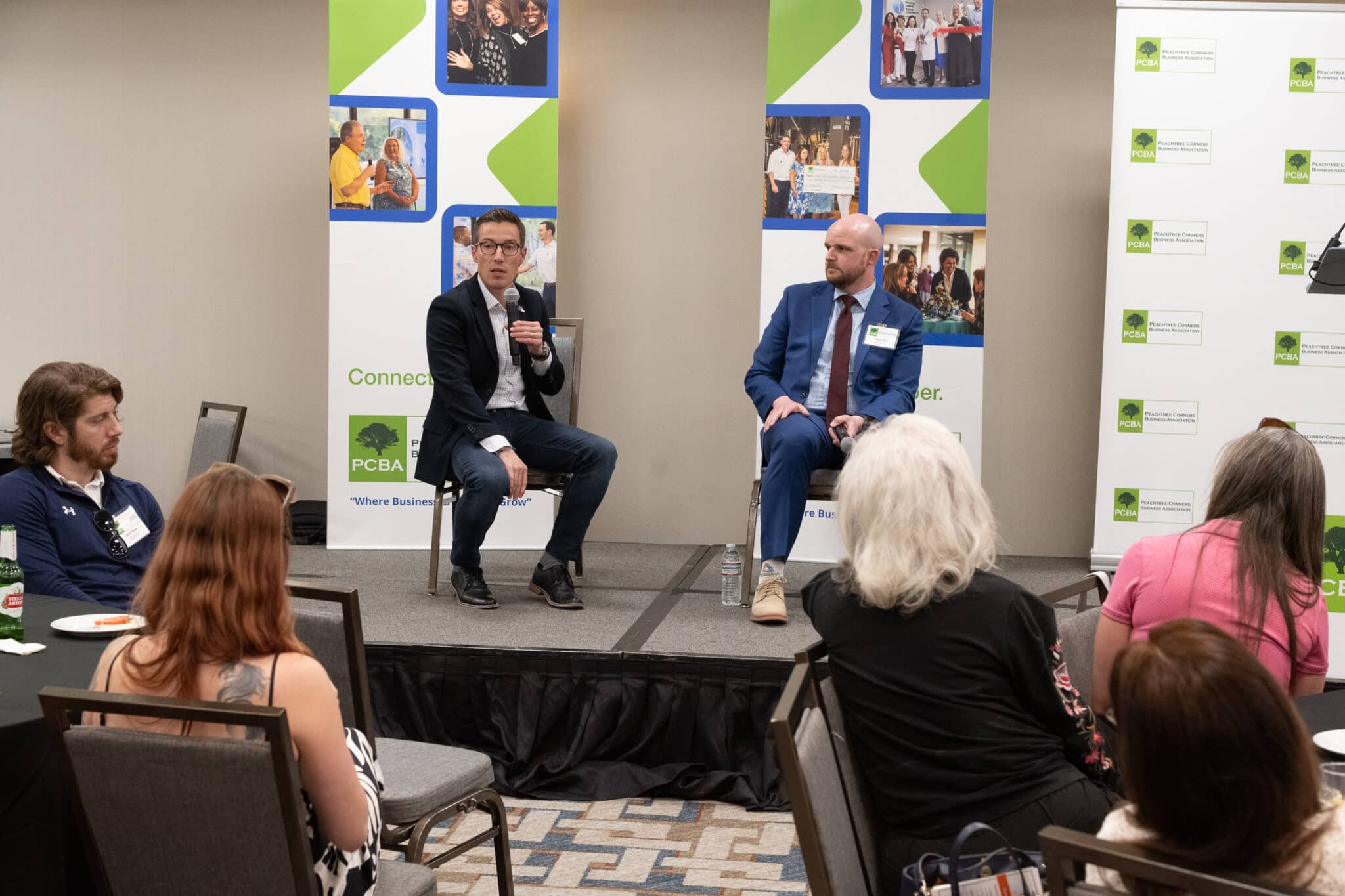
Most residents and business owners in Peachtree Corners probably think they know all about the economic development and strategic planning of Peachtree Corners, but do they really?
Peachtree Corners Business Association invited Peachtree Corners Economic Development Director Betrand Lapoire and Partnership Gwinnett Director of Economic Development Andrew Hickey to its After Hours Speaker Series on March 27 to discuss the city’s growth from a 1971 master plan to a bustling city with 42,000 inhabitants and 40,000 jobs.
Key points included the importance of business retention and expansion, with 24 projects last year creating 1,600 retained jobs, 1,600 new jobs and $250 million in new capital investment.
The Curiosity Lab, a world-class innovation center, was emphasized as a significant attraction. The city’s zoning and infrastructure plans were also discussed, focusing on balancing office and residential development to maintain a vibrant, sustainable community.
Matching jobs to residents
Although Peachtree Corners is just a teenager in terms of being an incorporated city, the foundation for this vibrant, fast-paced economic hub was laid more than 50 years ago by technology pioneer Paul Duke.
“Peachtree Corners was the first master-planned, business innovation technology park in metro Atlanta,” said Lapoire. “It was in response to the brain drain of technology with Georgia Tech graduates leaving the area.”
While the city may have a small-town feel, it’s the largest in Gwinnett County by population, but not land mass, he added.
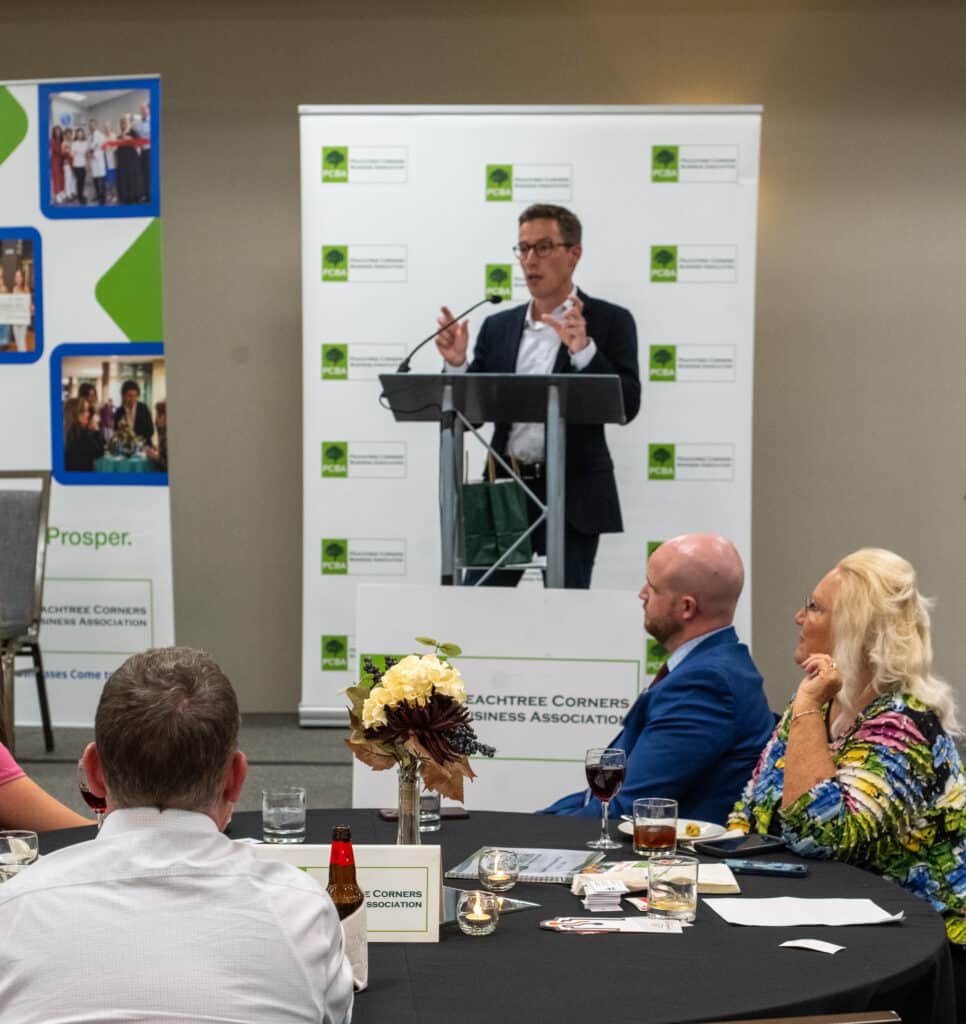
“The city started from a commercial, industrial, R&D base and then was expanded around it,” said Lapoire.
Though home to more than 42,000 residents, most of the jobs in Peachtree Corners are filled by people who live outside the city, he added.
“So we have this interesting mismatch, in a way, although not unusual,” said LaPoire. That creates traffic and transit issues. So that means that one of the solutions is to create more jobs here to fit the profile of the community.”
He presented charts that show professional services, consulting and engineering as the largest job categories. The next tier of businesses are wholesale and manufacturing.
“So we have a good mix of industry,” he said.
A five-year plan
The city has a five-year economic development plan (2023-2028) that outlines strategies for attracting and retaining businesses, with education and workforce development being key components.
Partnership Gwinnett has similar goals as Peachtree Corners, but on a larger scale.
“We are the county’s sales and marketing arm for all 17 cities now, and we receive funding from both municipal sources as well as existing businesses here — both in Gwinnett and outside of Gwinnett as well,” said Hickey.
He shared how Partnership Gwinnett is designed to drive a lot of major corporations toward doing business inside and with Gwinnett County.
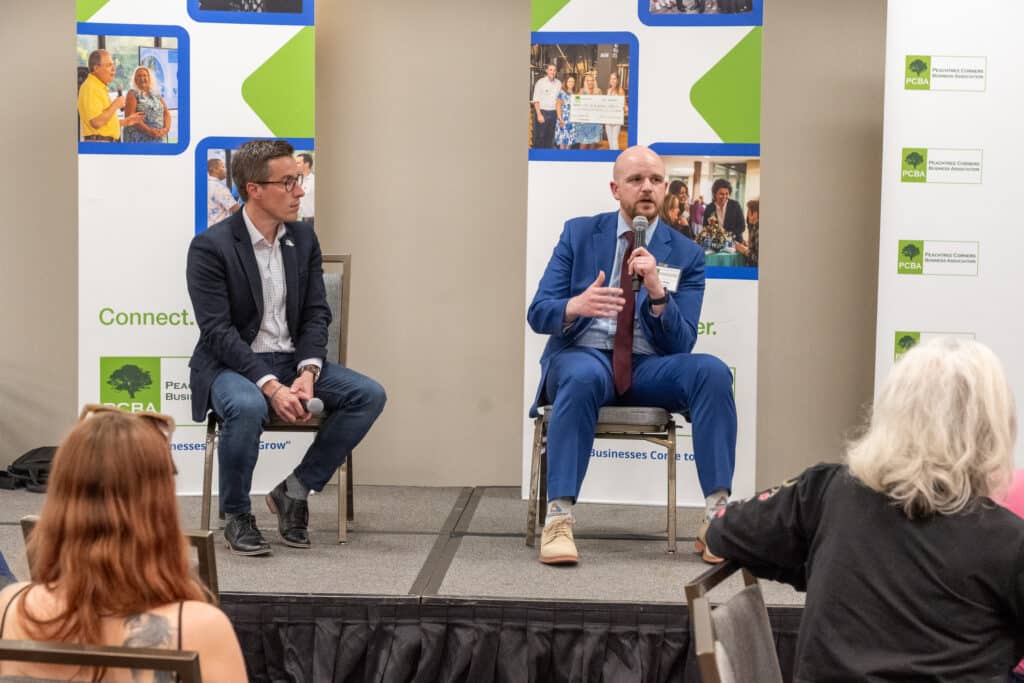
“One of the biggest things that we talk about that I’m sure it seems like most of us here, if you live here, you work here, you understand it. It’s the diversity that exists here in Gwinnett,” he said. “With a diversity index of 85, that means if we walk out of the Hilton here and we say hello to somebody, there’s an 85% chance they’re from a different ethnic or cultural background than ourselves, which to you and I may seem normal because that’s the life that we live in.”
He added that for companies, there’s a tremendous value in that, whether they have stated values, or they’re just making hiring decisions to get a wide range of candidates to fill those roles. Additionally, because of the proximity to Atlanta, Gwinnett County has a great labor draw.
Partnership Gwinnett
Partnership Gwinnett plays a significant role in recruiting businesses, expanding existing companies and developing the workforce. Hickey showed how the organization was involved with more than 24 projects last year.
“A majority of those were expansions, and that is a common thread you’ll see in economic development,” he said. “In business retention, expansion is so vital to working with our existing companies to make sure that they have the resources they need.”
He added that’s what leads to new investment and job creation in the community.
The organization also focuses on redevelopment projects, working with cities and the county to improve infrastructure and community amenities — especially strong educational institutions such Georgia Gwinnett College, Philadelphia College of Osteopathic Medicine and others.
Quality of life
In closing, both men stressed the importance of recruiting companies and developing the workforce, along with one aspect that means a lot but may not be as obvious — quality of life.
“It’s definitely evident that people like to work where they live — the whole live, work play experience,” said Hickey. “I joke that the part that people really have the most questions about, and are most excited to learn about, is new events at The Forum or Gwinnett Place Mall.”
Although they want to know what’s the next major company coming to Gwinnett, people REALLY want to know about how to spend their leisure time.
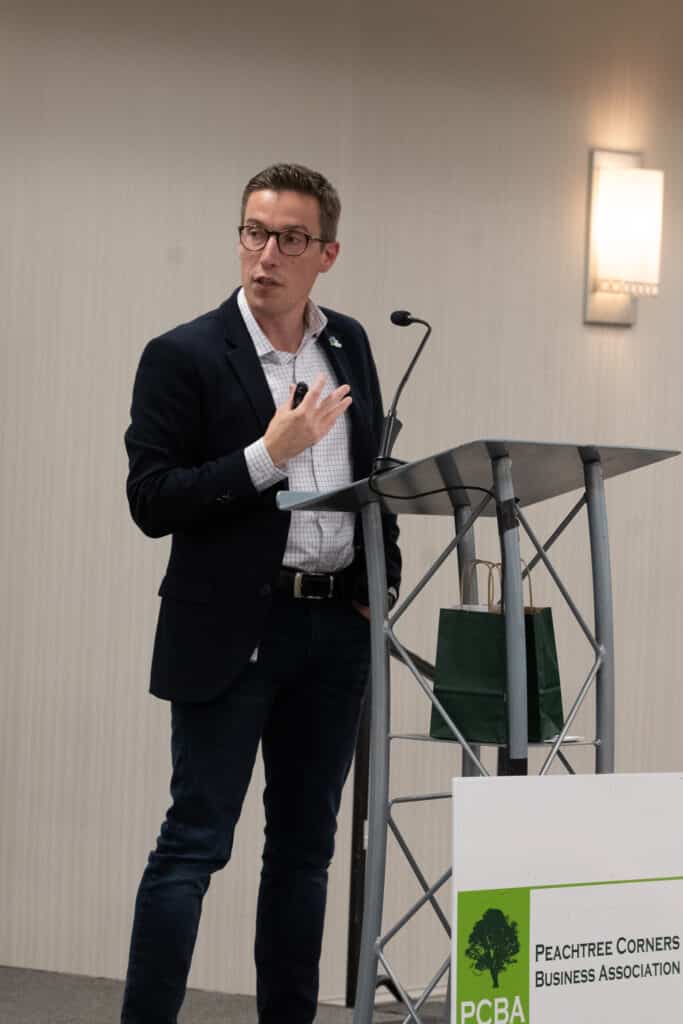
“That speaks to the importance of ensuring that we have a great community,” he said. “So at Partnership Gwinnett we work with all of our cities, and the county government as well, [on] a kind of a best-practices trip.”
He added that the peer tour allows everyone to know what the neighboring communities are doing and share the good news.
“We will take all of these elected officials, but also city staff, to different cities across the Southeast,” he said. “Last year, I believe they went to Huntsville, and have been to Greenville, Chattanooga — all cities that have done some really cool redevelopments that have taken their city to the next level. Our goal is to learn from them.”
Related
Business
Two Peachtree Corners Business Leaders Named Finalists for EY Entrepreneur Award
Published
3 weeks agoon
April 23, 2025
Ernst & Young’s Entrepreneur Of The Year celebrates ambitious entrepreneurs who are shaping the future
Ernst & Young LLP (EY US) recently announced the finalists for the prestigious Entrepreneur Of The Year 2025 Southeast Award, and two local, Peachtree Corners business leaders — David Quirk, president and CEO of DLB Associates Consulting Engineers PC and Erin Hanson, founder and CEO of Guardian Sports — made the list.
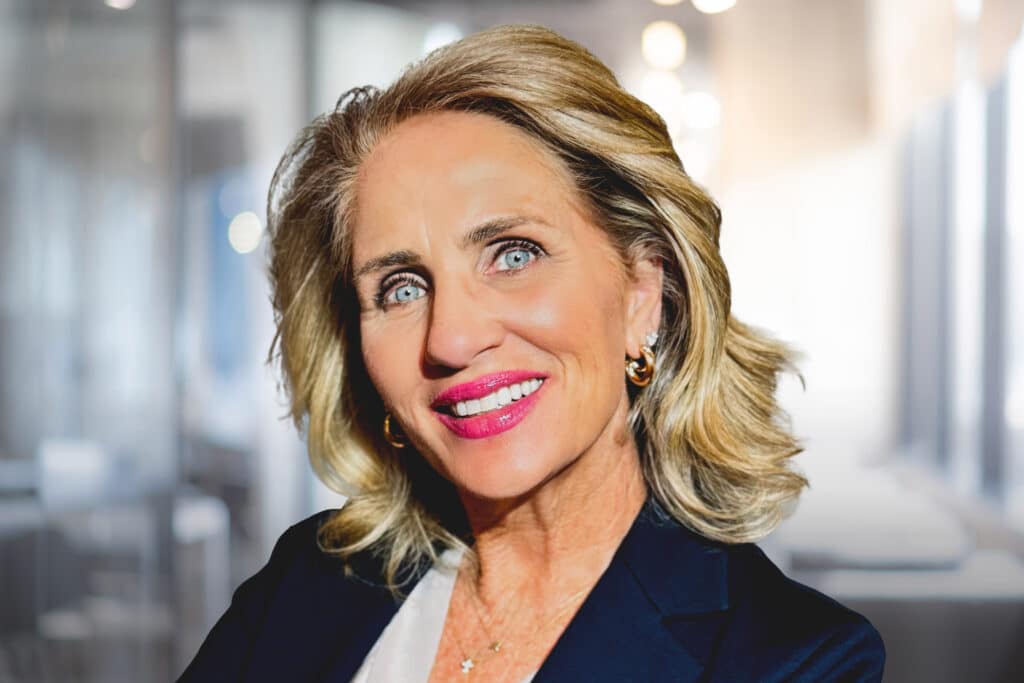
Hanson’s Guardian Sports is a family-owned company dedicated to serving athletes through safety and performance improvements in sports equipment. Major products include the Guardian Cap, PEARL ball and Guardian Infill serving the sports industry.
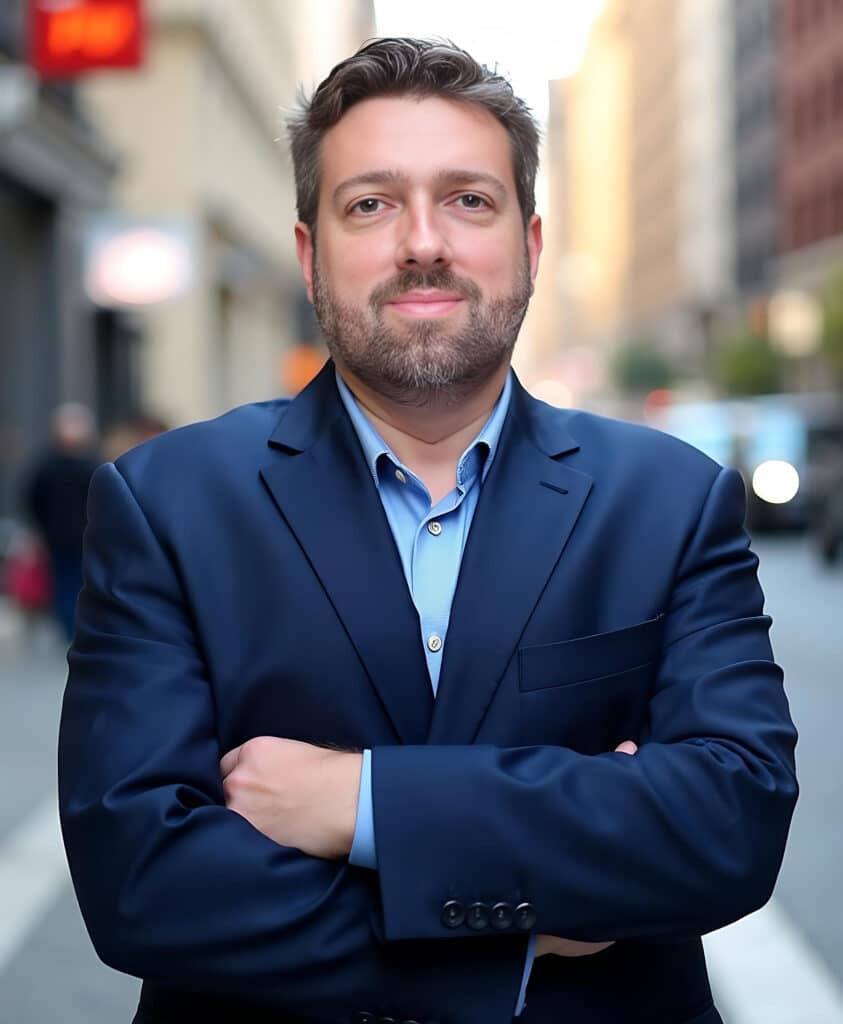
DLB Associates is a U.S.-based consulting engineering firm specializing in mission-critical and complex built environments. With more than 40 years of expertise, DLB delivers innovative, technology-driven solutions in engineering, commissioning and operations worldwide.
Celebrating entrepreneurial leaders
Now in its 40th year, Entrepreneur Of The Year recognizes the bold leaders who disrupt markets through the world’s most ground-breaking companies, revolutionizing industries and making a profound impact on communities. The program honors those entrepreneurs whose innovations shape the future and pave the way for a thriving economy and a hopeful tomorrow.
The Southeast program celebrates entrepreneurs from Alabama, Georgia, North Carolina, South Carolina and Tennessee.
An independent panel of judges selected 36 finalists for their entrepreneurial spirit, purpose, growth and lasting impact in building long-term value.
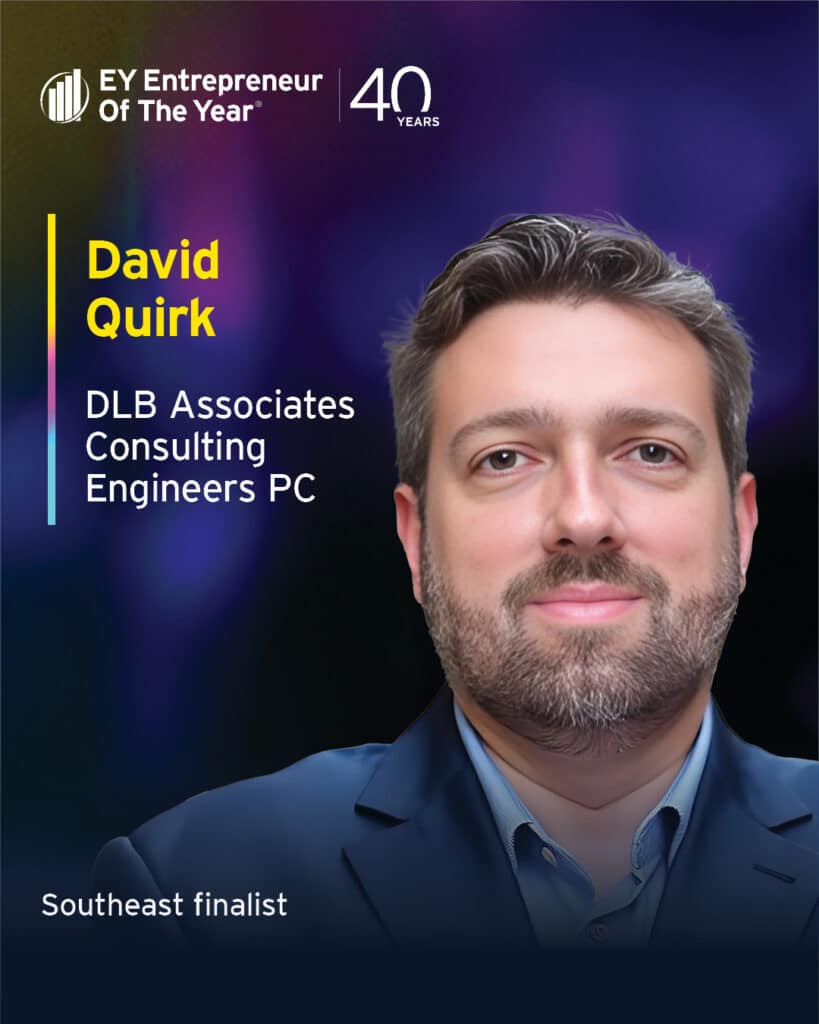
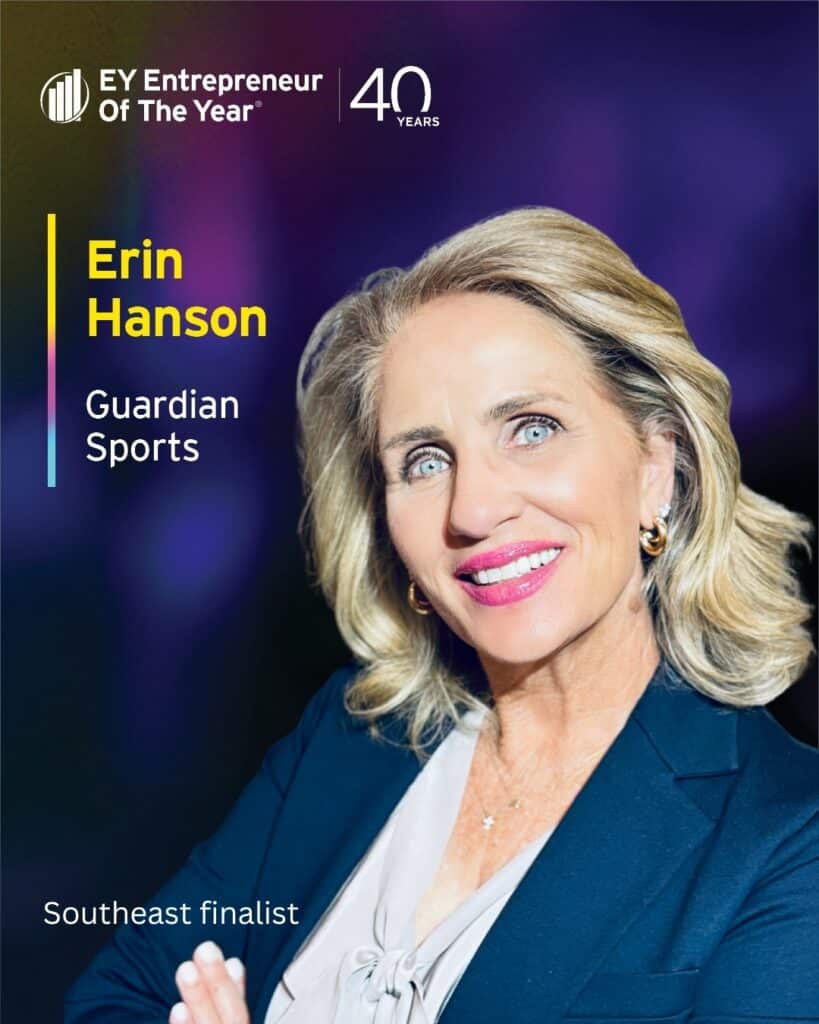
“This year’s finalists are leading examples of innovation, perseverance and resilience, illuminating paths to a brighter future for their industries and communities,” said Chevy Arnold, Entrepreneur Of The Year Southeast Program co-director.
“Their commitment to excellence transforms challenges into opportunities, inspiring us all,” added Kimberly Kicklighter, Entrepreneur Of The Year Southeast Program co-director.
Entrepreneur Of The Year honors many different types of business leaders for their ingenuity, courage and entrepreneurial spirit.
The program showcases original founders who bootstrapped their business from inception or who raised outside capital to grow their company; transformational CEOs who infused innovation into an existing organization to catapult its trajectory; and multigenerational family business leaders who reimagined a legacy business model to strengthen it for the future.
Including Quirk and Hanson, the 2025 Southeast finalists are:
- Marc Hodulich | 29029 | Atlanta, Georgia
- Damon Stafford | Alpine Intel | Charlotte, North Carolina
- Lou Hensley | Aspida | Durham, North Carolina
- Matthew Dent | Buffalo Rock Company | Birmingham, Alabama
- Melanie Little | Colonial Pipeline Company | Alpharetta, Georgia
- Will Bartholomew | D1 Training | Franklin, Tennessee
- Rene Diaz | Diaz Foods | Atlanta, Georgia
- David Quirk | DLB Associates Consulting Engineers PC | Peachtree Corners, Georgia
- Markus Scott | EyeQ Monitoring | Atlanta, Georgia
- Jon Gosier | FilmHedge | Atlanta, Georgia
- John Fitzpatrick | Force Marketing | Atlanta, Georgia
- Dr. Barry Patel | Galt Companies | Atlanta, Georgia
- Dr. Wade Smith | Galt Companies | Atlanta, Georgia
- Charles Gillespie | Gambling.com Group | Charlotte, North Carolina
- Kevin McCrystle | Gambling.com Group | Charlotte, North Carolina
- Mike Griffin | Griffin Brothers Companies | Cornelius, North Carolina
- Erin Hanson | Guardian Sports | Peachtree Corners, Georgia
- Dan Beem | Hissho Sushi | Charlotte, North Carolina
- Aaron Siegel | Home Team BBQ | Charleston, South Carolina
- Marc Murphy | Ignite Digital Services | Charleston, South Carolina
- Miller Chalk | Inglett & Stubbs, LLC | Mableton, Georgia
- Liza Rodewald | Instant Teams | Southern Pines, North Carolina
- Stephen Andresen | McClancy Foods & Flavors | Fort Mill, South Carolina
- Travis LeFever | Mission Mobile Medical Group | Greensboro, North Carolina
- Cyrus Mojdehi | Northway Homes | Charlotte, North Carolina
- Connor Ryan | NutraSky | Alpharetta, Georgia
- Fritz Owens | OTR Solutions | Roswell, Georgia
- Christopher Chuang | Relay, Inc. | Raleigh, North Carolina
- Kurt Jacobus | restor3d, Inc. | Durham, North Carolina
- Tom Kendrot | Shearwater Health | Nashville, Tennessee
- Teak Shore | Southern Lighting Source | Cumberland, Georgia
- Cindy Eckert | Sprout Pharmaceuticals | Raleigh, North Carolina
- Bryan Moore | TalkShopLive Inc. | Nashville, Tennessee
- Tina Moore | TalkShopLive Inc. | Nashville, Tennessee
- Igor Marinelli | Tractian | Atlanta, Georgia
- Joan Butters | Xsolis | Franklin, Tennessee
You can learn more about the finalists at ey.com/en_us/entrepreneur-of-the-year-us/southeast/winners-finalists.
Regional award winners will be announced on June 25 during a special celebration. The winners will then be considered by the national independent panel of judges for the Entrepreneur Of The Year National Awards, which will be presented in November at the annual Strategic Growth Forum®, one of the nation’s most prestigious gatherings of high-growth, market-leading companies.
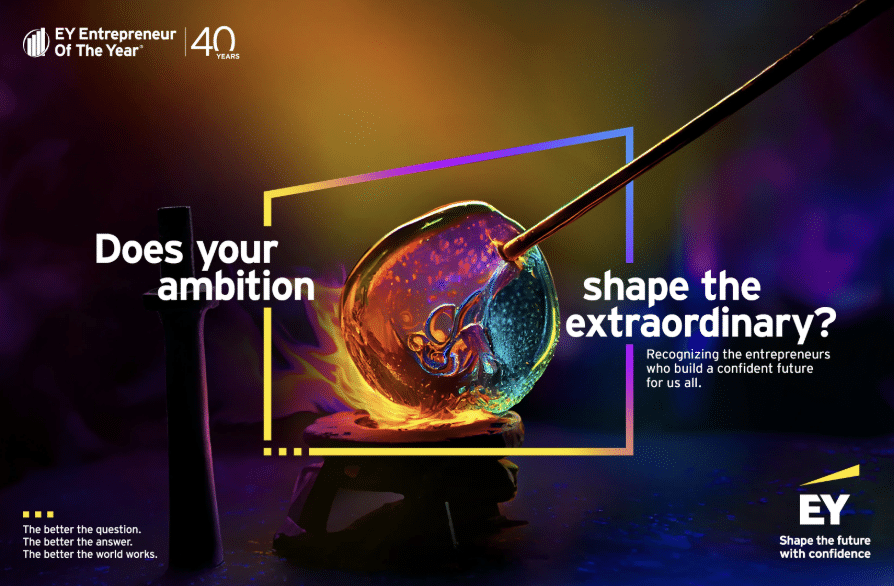
About Entrepreneur Of The Year
Founded in 1986, Entrepreneur Of The Year has celebrated more than 11,000 ambitious visionaries who are leading successful, dynamic businesses in the U.S., and it has since expanded to nearly 60 countries globally.
The U.S. program consists of 17 regional programs whose panels of independent judges select the regional award winners every June. Those winners compete for national recognition at the Strategic Growth Forum® in November where national finalists and award winners are announced.
The overall national winner represents the U.S. at the EY World Entrepreneur Of The Year™ competition.
For more about the award, visit ey.com/us/eoy.
Related
Business
SCB Construction Group Partners with CGA Reps on New Peachtree Corners HQ
Published
4 weeks agoon
April 15, 2025
SCB Construction Group, freshly rebranded from SteelCo, secures construction project with CGA Reps for new office HQ in Peachtree Corners
SCB Construction Group has announced a strategic partnership with CGA Reps to build a new office headquarters in Peachtree Corners. The project, encompassing approximately 26,000 square feet of innovative workspace, marks a significant milestone in advancing CGA Reps’ corporate vision while showcasing SBA Construction Group’s commitment to delivering transformative construction solutions.
In collaboration with Oakley Real Estate Partners — serving as developers of the project on behalf of CGA Reps — this venture reflects a united effort to bring cutting-edge design (from Smallwood architecture firm) and operational excellence to the commercial kitchen equipment industry.
The announcement follows several high-profile projects for SCB Construction Group in 2024, including a 72,500-square-foot manufacturing center and headquarters for Process Equipment & Controls, an impressive interior build-out for Courtesy Ford Conyers’ commercial service center and the Phase 1 completion for StoreEase Loganville — recently honored as a 2024 Smart Facility of the Year by Modern Storage Media.
A bold new chapter for CGA Reps
The new 25,890-square-foot headquarters is designed to be more than just a workplace — it is envisioned as an inspiring environment that serves both client engagements and employee creativity. CGA Reps is recognized as an industry expert in commercial kitchen equipment, representing leading manufacturers, warehousing, distributing and installing everything from fryers to commercial walk-in freezers.
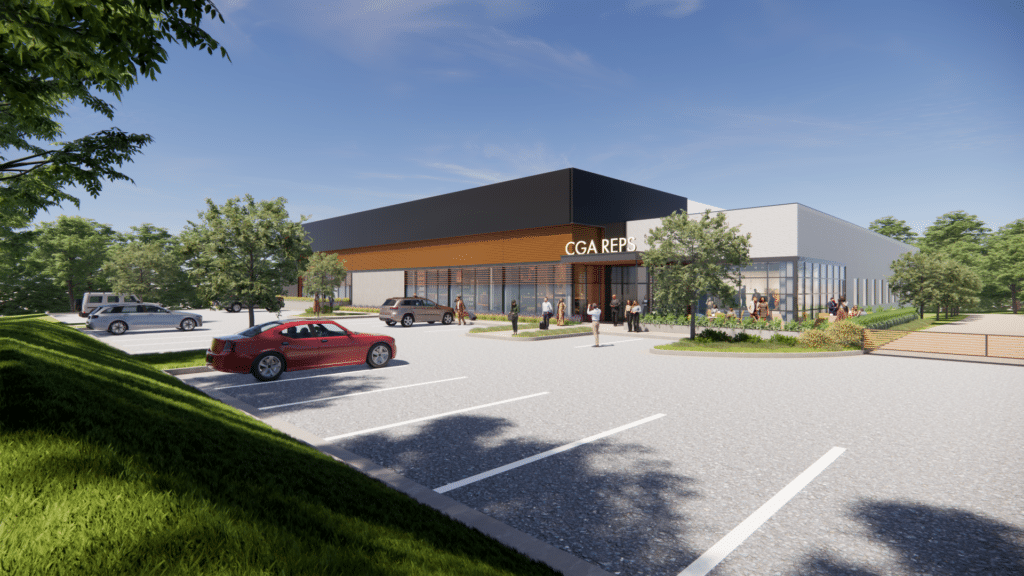
The facility’s design reflects this expertise, featuring a dedicated approximately 9,000-square-foot showroom kitchen that will host equipment demonstrations, tradeshows and webinars. This dynamic space will allow CGA Reps to showcase its comprehensive product range and provide clients with hands-on experiences of the latest commercial kitchen innovations.
A standout feature of the project is its innovative approach to stormwater management. With the site comprising only three acres, sufficient space for a traditional detention pond does not exist. To overcome this challenge, the design includes an underground detention system located beneath the truck court to efficiently handle all stormwater runoff.
This solution not only maximizes the use of the available land but also reinforces CGA Reps’ commitment to sustainable practices.
“We are excited to embark on this project with CGA Reps,” said Jay Bailey, CEO of SCB Construction Group. “This partnership underscores our commitment to customer excellence in design and construction, and it is a testament to the trust our clients place in our ability to deliver projects that not only meet but exceed expectations.”
Delivering excellence through proven expertise
SCB Construction Group’s track record in 2024 has been nothing short of remarkable. Earlier in the year, the company completed a 72,500 square foot manufacturing center for Process Equipment & Controls, integrating office space within a dynamic production facility.
This project was celebrated for its innovative design that balanced operational efficiency with a modern aesthetic, utilizing IMP panels to mimic tilt-up concrete, setting new standards for manufacturing environments.
Similarly, the interior build-out for Courtesy Ford Conyers’ commercial service center demonstrated SCB Construction Group’s ability to transform conventional spaces into functional and attractive environments that cater to both customer and staff needs.
The company’s commitment to quality and precision was again evident in the successful Phase 1 completion for StoreEase Loganville. This project, which recently earned the distinction of a 2024 Smart Facility of the Year by Modern Storage Media, highlights SCB Construction Group’s forward-thinking approach to construction and design, incorporating smart technologies and design that enhance sustainability and operational efficiency.
A rebranding that reflects a vision for the future
In a move that signals its evolution and growth, SCB Construction Group has recently rebranded from its former identity, SteelCo Buildings, as it spins off its construction division. This strategic rebranding is not merely cosmetic — it represents a renewed commitment to capabilities, credibility and client-focused service.
The refreshed brand is anchored by a new tagline “Deep Expertise, High Expectations” and a clear brand promise that communicates the company’s mission: to craft exceptional construction experiences based on precision, innovation and trust.
“Our rebranding is about more than just a new name or logo; it’s a renewed promise to our clients and communities,” explained Robert Lee, marketing director at SCB Construction Group. “We believe that our updated brand identity, including our invigorated tagline and mission statement, encapsulates our dedication to pushing the boundaries of design and construction. It reflects our commitment to creating spaces that are as inspiring as they are functional.”
Transforming spaces to inspire and connect
The new headquarters for CGA Reps is expected to become a landmark facility in Peachtree Corners. Beyond its impressive architectural design and advanced construction techniques, the building is planned as a hub for innovation and collaboration.
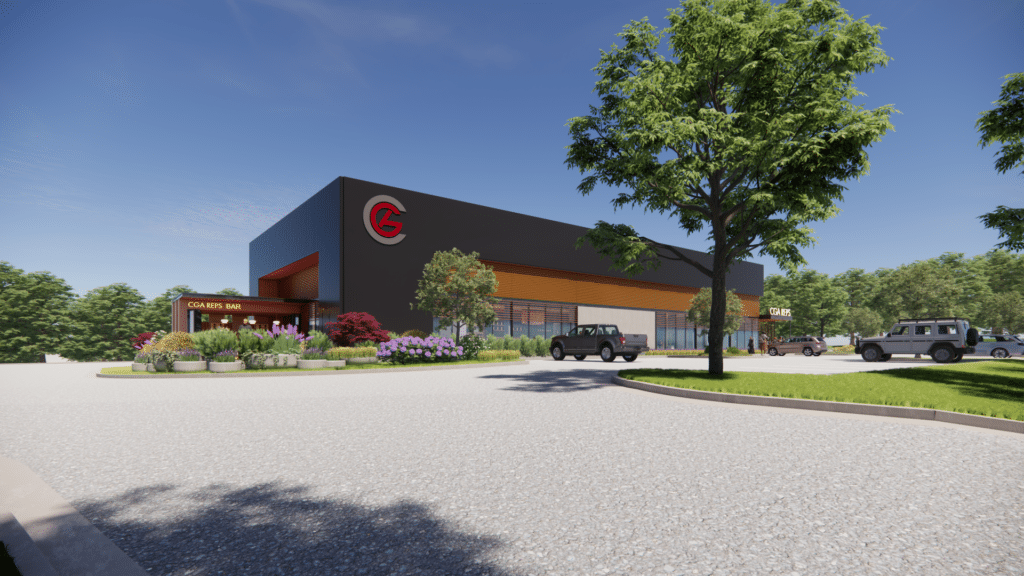
The interior build-out will include dynamic client reception areas, interactive meeting rooms, and dedicated spaces designed to foster creativity and teamwork among employees. The layout is crafted to ensure that every area of the facility contributes to a productive and inspiring work environment.
“By investing in this state-of-the-art facility, CGA Reps is making a strong statement about the future of work,” said Bryan Young, VP of construction at SCB Construction Group. “Our team is dedicated to designing and building spaces that not only serve the immediate needs of our clients but also create environments that motivate and inspire. The new headquarters will be a testament to that vision.”
Looking ahead
The partnership between SCB Construction Group and CGA Reps marks a significant step forward for both companies. As SCB Construction Group continues to build on its legacy of excellence and innovation, this project is poised to set a new benchmark for modern office headquarters design in the region.
With a strategic focus on creating spaces that inspire, connect and drive success, the future looks promising for both SCB Construction Group and its esteemed partner, CGA Reps.
For more information on the new headquarters project or to learn more about SCB Construction Group’s portfolio, visit scbcg.com.
Related
Read the Digital Edition
Subscribe
Keep Up With Peachtree Corners News
Join our mailing list to receive the latest news and updates from our team.
You have Successfully Subscribed!

Katherine Lafourcade — A Journey of Passion, Resilience and Giving Back

Digital Edition

PCBA Announces 2025 Scholarship Winner

Official City Merchandise Line Debuts This Saturday at Town Green

Paul Duke STEM High School Student Earns CGO Scholarship

World Blood Donor Day Starts Here: Theo’s Miracle, Katherine’s Mission [Podcast]

Executive Function: A Tribute to Working Moms

Peachtree Corners Grows Business Opportunities Through Economic Development

City of Peachtree Corners Awarded Certificate of Achievement From GFOA for Seventh Straight Year

Simpson Elementary Marks Exceptional Children’s Week

Executive Function: A Tribute to Working Moms

Official City Merchandise Line Debuts This Saturday at Town Green

Peachtree Corners Grows Business Opportunities Through Economic Development

Digital Edition

World Blood Donor Day Starts Here: Theo’s Miracle, Katherine’s Mission [Podcast]

Paul Duke STEM High School Student Earns CGO Scholarship

Light up the Corners [Video]

Capitalist Sage: Business Leadership in Your Community [Podcast]

Cliff Bramble: A Culinary Adventure through Italy

Top 10 Brunch Places in Gwinnett County

A Hunger for Hospitality

THE CORNERS EPISODE 3 – BLAXICAN PART 1

Top 10 Indoor Things To Do This Winter

The ED Hour: What it takes to Remove Barriers from Education

Peachtree Corners Life
Topics and Categories
Trending
-
City of Peachtree Corners5 days ago
Official City Merchandise Line Debuts This Saturday at Town Green
-
Community5 days ago
Executive Function: A Tribute to Working Moms
-
Community4 days ago
Simpson Elementary Marks Exceptional Children’s Week
-
City Government2 days ago
City of Peachtree Corners Awarded Certificate of Achievement From GFOA for Seventh Straight Year





